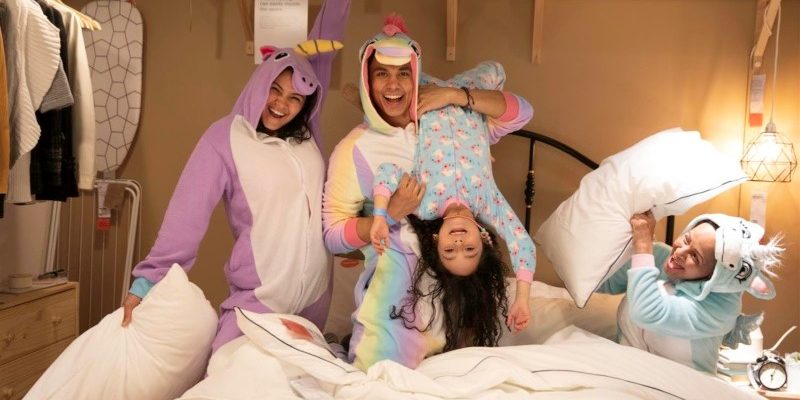Successful experiential events are those that create memorable, engaging experiences and effectively promote the brand. Here are a few notable examples:
1. IKEA's Sleepover Event
In 2011, IKEA hosted a sleepover event at their Essex store in the UK, inviting participants to spend the night in their showroom. The event featured sleep experts who provided advice, a bedtime story read by a celebrity, and the opportunity for guests to test out IKEA mattresses and bedding. This unique experience not only allowed participants to try IKEA products in a real-life setting but also garnered significant media coverage and social media buzz.
2. Red Bull Stratos
Red Bull’s Stratos project in 2012 was a groundbreaking experiential event where skydiver Felix Baumgartner jumped from a helium balloon in the stratosphere, breaking the world record for the highest freefall jump. The event was live-streamed, capturing the attention of millions worldwide. This event showcased Red Bull’s brand values of pushing limits and extreme sports, resulting in massive global engagement and a significant boost in brand visibility.
3. Samsung Galaxy Studio
To promote the Samsung Galaxy S8, Samsung created Galaxy Studio pop-ups in major cities around the world. These interactive installations allowed visitors to experience the phone’s features firsthand through various activities, such as VR experiences, water resistance tests, and low-light photography challenges. The hands-on nature of the event allowed potential customers to engage with the product in a memorable and meaningful way.
4. Nike's House of Innovation
Nike’s House of Innovation, located in major cities like New York and Shanghai, offers a futuristic retail experience. These stores feature customizable products, interactive displays, and exclusive merchandise. Visitors can engage in personalized shopping experiences, including gait analysis for the perfect running shoe and real-time customization of apparel. This immersive retail environment strengthens customer loyalty by providing a unique and engaging shopping experience.
5. Google Home Mini Donut Shop
In 2017, Google promoted its Home Mini smart speaker by setting up pop-up donut shops in several US cities. Visitors received free donuts and could also take home a Google Home Mini if they discovered one inside their box. The playful and unexpected combination of donuts and tech products created a buzz, drawing crowds and generating significant social media sharing.
6. Westworld at SXSW
To promote the second season of the TV show “Westworld,” HBO created an elaborate, immersive experience at the 2018 South by Southwest (SXSW) festival. They built a replica of the show’s western town, Sweetwater, complete with actors in character, detailed sets, and interactive storylines. This allowed fans to step into the world of “Westworld,” creating a highly engaging and shareable experience.
Conclusion
These examples illustrate how experiential events can create memorable, engaging experiences that leave a lasting impact on participants, generate buzz, and enhance brand perception. By incorporating interactive elements, personalization, and immersive environments, brands can forge strong emotional connections with their audience.







